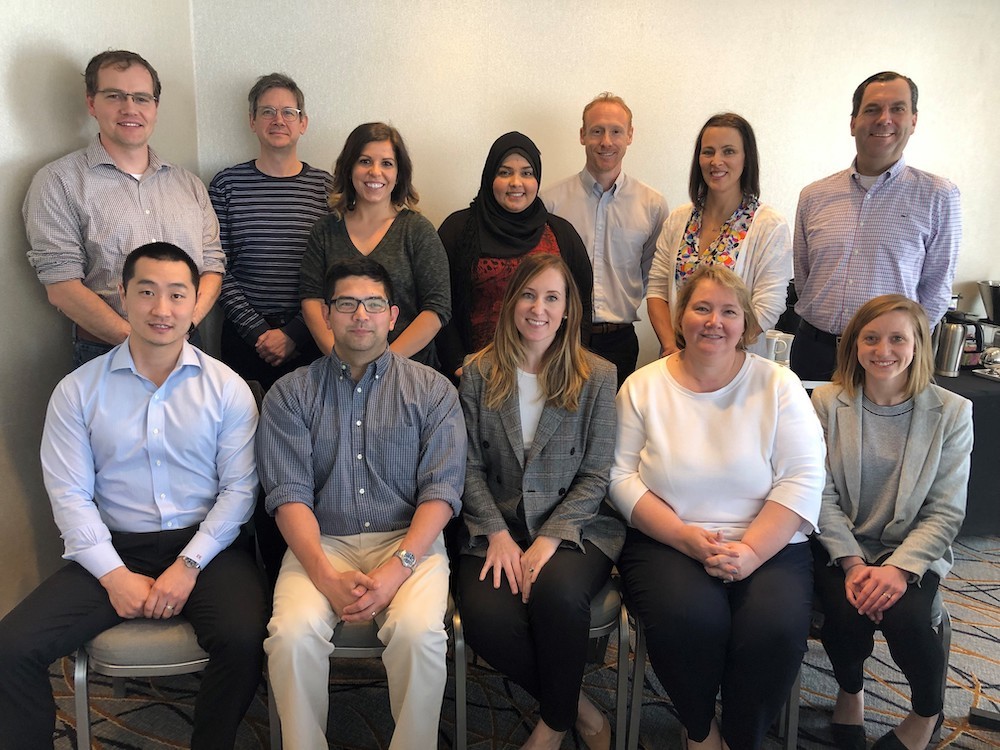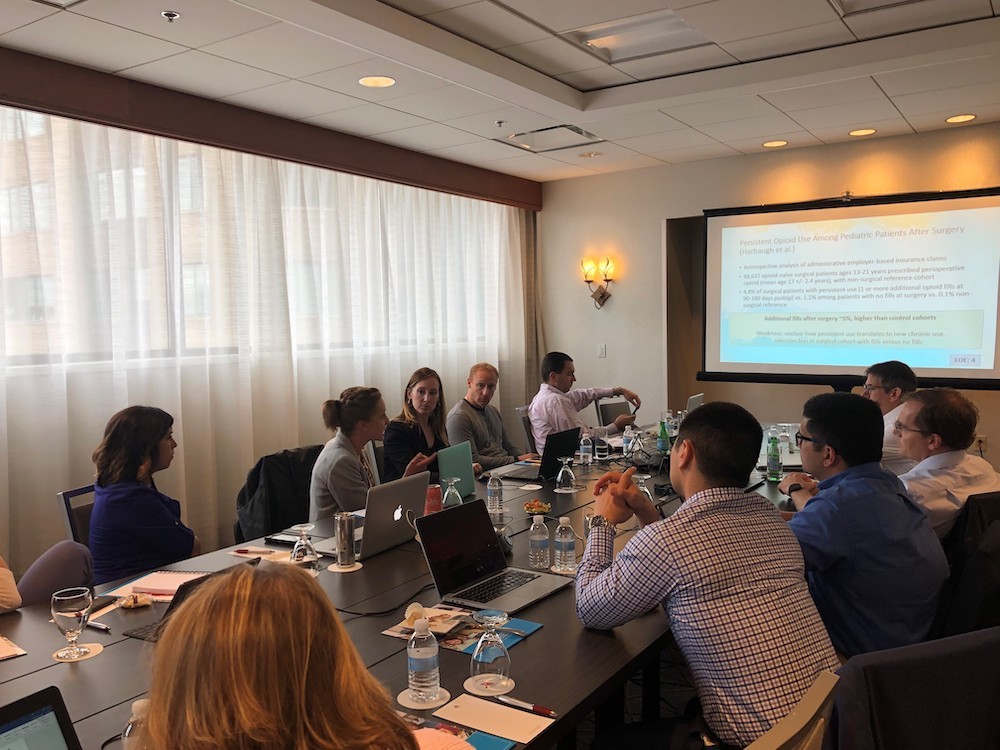
Group leaders: Dr. Lorraine Kelley-Quon, Dr. Eugene Kim and Dr. Matthew Kirkpatrick
Project summary:
The primary objective of this multidisciplinary group was to generate evidence-based guidelines regarding opioid prescribing for children after surgery. Currently, the increase in opioid use and misuse in adults in the United States is mirrored in the pediatric population. Surgeons often prescribe opioids for relief of acute pain following surgery, but there are no national standards of “best practices” for opioid prescribing in children. Several studies of surgeons caring for adult patients have identified a significant excess of opioids prescribed after surgery, with estimates of more than 70% of pills left unused and a significant risk of conversion to chronic use.
With this in mind, the American Pediatric Surgical Association (APSA) Outcomes and Evidence Based Practice (OEBP) Committee put forth a new goal of guideline development for opioid prescribing in children after surgery. APSA is the nation’s largest professional organization dedicated to the pediatric surgical specialty and represents the interests of thousands of pediatric surgeons nationally. APSA’s OEBP committee is charged with generating systematic reviews, surveys and guidelines for pediatric surgical practice. As a member of the OEBP committee, Dr. Lorraine Kelley-Quon lead a multidisciplinary team with representatives from pediatric surgery, pediatric anesthesia, addiction science, nursing, general surgery residency, and patient and parent advocates to create evidence-based guidelines for opioid prescribing in children after surgery. Funding from the SC CTSI team science grant was used to support a 2-day in person meeting in May 2019 during which team representatives presented multiple systematic reviews of the literature and voted on wording of guideline statements using modified-Delphi methodology. Statements were reviewed, edited and endorsed by the APSA Board of Governors and the American Academy of Pediatrics Section on Surgery Executive Committee.
Future directions for this effort include forming specialized recommendations for neonates who require opioids after surgery in the neonatal intensive care setting. In addition, this group would like to further partner with other specialties such as orthopedic surgery, neurosurgery and dental surgery who also routinely prescribe opioids after procedures. Our hope is also that their example of a successful multidisciplinary engagement using formalized guideline development will help inspire other groups to similarly engage not only clinicians but also parents and patients to create truly patient-centered documents guiding medical professionals on how to appropriately manage pain in children.
Learn more about their work:
- National Summit on Acute Pain Management: How Clinicians Are Addressing the Opioid Crisis
- Guidelines for Opioid Prescribing in Children and Adolescents After Surgery: An Expert Panel Opinion

Contact information
Lorraine Kelley-Quon, MD, MSHS, FAAP
Assistant Professor of Surgery and Preventive Medicine, Division of Pediatric Surgery, Children’s Hospital Los Angeles, Department of Surgery, Keck School of Medicine of USC